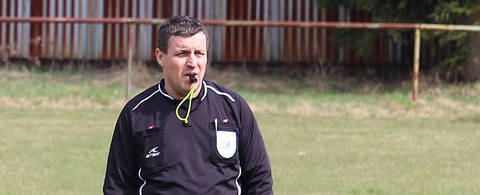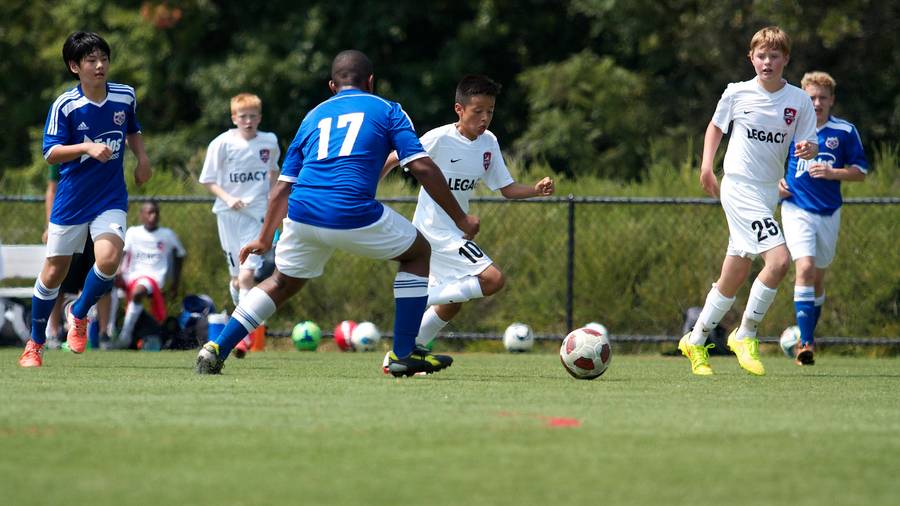
Evaluating the performance and organisation of a Junior Grassroots Football Club is a crucial but often overlooked step in assessing its progress and offers the chance to make necessary adjustments as needed.
Once the dust has settled from the start of the system and the rhythm of training and matches is underway (typically through the Autumn) an evaluation allows club officials to consider such things as team and individual player development, organisational effectiveness, fundraising and financial stability, fair play and discipline, training quality, player attendance, health and well-being, and the overall satisfaction of all stakeholders.
By carefully analysing these aspects, clubs can identify areas of strength and areas that require improvement. There are a few things to consider when evaluating the progress of your team and we’ll offer some suggestions here of things you might want to think about.

Level of Enjoyment
I’m a firm believer that unless your operating at a professional academy the only true measure of your success for your Junior Team is whether its participants are enjoying themselves or not! As we know only too well as coaches it can be difficult (impossible!) to keep everyone happy at all times but you can still make judgements about whether people are happy and engaging at training and leaving their matches with a smile on their face feeling they’ve made a contribution.
How engaged are ALL players? Do they feel a part of something or are they on the fringes watching the better ones enjoy themselves?
Individual Player Development
Closely linked to the above is the question of whether players believe they are progressing as this is often the key to their enjoyment. Monitoring the development of individual players is vital for their growth and the overall team's progress.
You could consider the following aspects with this:
a) Skills development - Assess the improvement of individual players in technical skills such as passing, dribbling, shooting, and defending.
b) Tactical understanding - Evaluate players' ability to understand and execute their roles within the team. Do they have an awareness of their role?
c) Engagement – As mentioned above, a key sign that players are enjoying themselves and developing their game is their level of engagement. Are they actively participating in training sessions and team events or are they skipping them with excuses?
d) Attitude and commitment - Consider the players' dedication, work ethic, and willingness to learn and improve.
Team Development
Assessing the progress of the team as a whole is useful to understanding its performance.
Consider the following factors:
a) Performances – Regardless of the result you can evaluate the team's performance in matches, taking into account the overall playing style and how well the team did in certain phases of the game. For instance, it’s not unusual for Junior Teams to be good at certain aspects of the game (e.g. keeping possession) but find themselves overpowered at times leading to a defeat. The scoreline shouldn’t detract from the good play.
b) Tactical development – is the team's understanding and awareness of what you are coaching them improving during the matches or do they swarm around the ball? Can you improve the structure throughout the course of the season?
c) Cohesion and teamwork – Are they playing for themselves or for the good of the team? Evaluate the level of teamwork, communication, and understanding among the players.
Communication and Organisational Effectiveness
We’ve all been there! Someone turned up to training when there wasn’t one, someone didn’t turn up to training because they thought it was cancelled!
Evaluating the club's communication and organisational effectiveness helps identify areas where improvements can be made.
You might want to think about:
a) Basic communications – Do people know when they’re turning up and where? Is everyone ‘in the loop’ with things like fixtures, training, meetings and social functions?
b) Administrative processes - Assess the efficiency of registrations, results reporting and subs payments systems
c) Volunteers – are all the jobs being done effectively in all the different roles? Are people still on board or have things slipped?
d) Safeguarding and well-being - Ensure that safeguarding policies are being adhered to at all times and the well-being of players is remains a priority.
Fundraising and Finance
How is the bank account looking? Have all the pitch hire, kit and training venue bills been paid for?
Evaluating the financial stability of the club and the effectiveness of fundraising efforts is well worth doing at this stage taking into account of:
a) Budget management - Assess the club's financial health by reviewing income and expenditure, ensuring that funds are allocated appropriately.
b) Fundraising activities - Evaluate the success of fundraising initiatives and their contribution to the club's financial resources. Is there the need to get another one in the diary?
c) Sponsorship and partnerships – Was everything done for the sponsors that was promised? Ensuring this is done now can vastly increase the chances that they will renew when the next season comes around.
Fair Play and Discipline
Examine the club's commitment to fair play and discipline, both on and off the pitch . How has the season started in this regard? Have there been any incidents, Sin bins or red cards?
What is your team’s reputation when it comes to fair play? Are you a popular member of your local football community?
You might want to consider the following:
a) Code of conduct - Review the club's code of conduct and assess how your team is meeting its aims.
b) Disciplinary incidents - Evaluate the number and nature of disciplinary incidents within your team. Have there been any and how serious were they?
c) Respect for officials and opponents - Assess the behaviour of EVERYONE (players, coaches, and parents) towards referees and opposing teams.
The shortage of referees is a major issue and many are put off by the abuse they receive. Is your team contributing to the problem or setting the right tone?
Results and Progression
Whilst enjoyment and development stand out for me as the only important factors I recognise that most people simply look at the results to analyse if the season is going well or not.
Again you can scratch beneath the surface of this and consider the following:
a) League stats - Evaluate the team's position within the league and its progress relative to your expectations. Are you higher or lower than expected and if so why?
b) Cup competitions - Assess the team’s performance in cup competitions and the progress made in each round.
c) Individual player achievements - Recognise individual player achievements, such as player of the match awards or call-ups to representative teams.
Feedback from Stakeholders
Gather feedback from key stakeholders such as parents, players, and club officials. You might want to:
a) Open communication channels - Ensure that stakeholders have a platform to provide feedback and share their experiences of how the season is going.
b) Conduct a brief surveys – there are lots of ways to set up a brief survey to gauge the opinions of parents and players on various aspects of the club's operations.
c) Addressing concerns – this information is only useful if you are prepared to actively address any concerns or suggestions raised by stakeholders to improve the ir overall experience.
Training Sessions
Assess the quality of training sessions and their impact on player development. Think carefully about:
a) Session planning – are the sessions being well planned or is it all spontaneous? Assess the effectiveness of session planning, including skill progression and variety.
b) Coaching standards - evaluate the quality of the coaching going on in all the sessions. Are the players just effectively having a kickabout or are they working a way that leads to improvement?
c) Player engagement - consider the level of player engagement and enjoyment during training sessions.
Player Attendance and Wellbeing
Monitor player attendance and their wellbeing by:
a) Keeping a track of attendance – Think about which players are ever present at training / matches and which players are starting to miss more often. What are the reasons behind this? You can identify patterns or areas of concern.
b) Safeguarding – Have there been any issues with safeguarding. You are the eyes and ears of the system in this respect, have you noticed anything that requires reporting? Do people understand how they can access support if needed and who from? Has this been tested?
c) Fitness and injuries – Have there been any injury concerns. Are there patterns around players suffering from specific injuries that mean you need to consider changes to training or the surface you play on?
d) Overall wellbeing and support – Do you think your players feel supported? Do they feel they can approach you and have a conversation if needed? You might want to ensure that the club provides resources and support for the mental and emotional well -being of your players.
Summary
An evaluation of your Junior Grassroots Football Team’s season both on and off the pitch is really important to ensure continuous improvement and success.
By assessing all of the above you can identify areas of strength and areas that require attention and it feeds into your decision making.
Making informed decisions and implementing necessary changes ensures you’re providing a really genuinely positive experience for all involved.

















